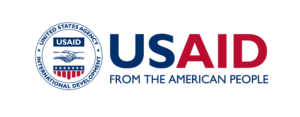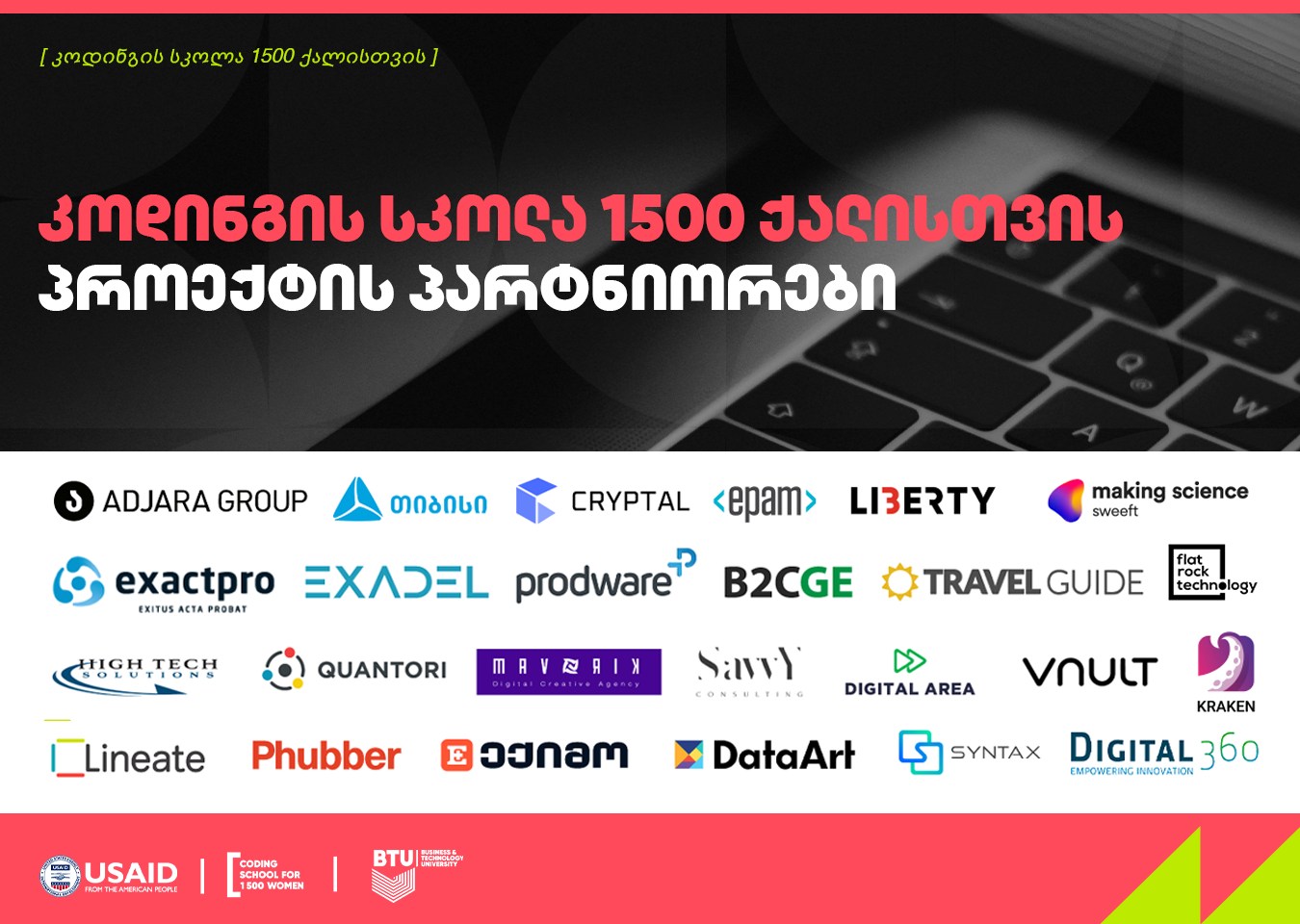Coding School for 1500 Women

The „Coding School for 1500 Women“ project aims to deliver a meaningful impact on the ICT sector and women from six regions of Georgia, including areas along the Administrative Boundary Lines (ABL) and those highly populated by ethnic minority groups. Skills training program implemented by Business and Technology University are driven by the growing need for a qualified workforce in the ICT sector. Skills that rural women and girls will acquire throughout the grant will help them be competitive in the local and international employment market and raise their standard of living. In addition, the grant activity aims to contribute to the achievement of four of the United Nations’ Sustainable Development Goals: 4 – Quality Education, 5 – Gender Equality, 8 – Decent Work and Economic Growth, and 17 – Partnerships to Achieve the Goal.
Project implementation is an ongoing, multi-faceted endeavor with the primary goal of establishing an inclusive environment where women from the specified regions can fully participate, irrespective of their ethnicity, religion, language, or social standing. Through various means, such as targeted information dissemination and recruitment procedures, industry-driven training initiatives, employment support services, career counseling, and active involvement of employers, the project aims to establish a sustainable connection between skill development and lucrative job prospects. By empowering women and girls in this manner, the project endeavors to decrease unemployment rates and enable them to play a pivotal role in driving economic growth nationwide.
Fully funded training program is conducted with three different batches of the selected beneficiaries and combines the components of Tech English, Tech courses, Career Bootcamp and Individual Mentorship developed in accordance with the requirements of the local and international labour markets.
Fully equipped coding school laboratories for women have been opened in the partner regional schools aiming to serve the beneficiaries with no or limited access to the internet and computers on a daily basis. The project implementation process in the regions is accompanied with an awareness raising campaign about the technologies.
After completion of the intensive training courses and additional activities planned within the framework of the project, the final event is organized for the beneficiaries, which covers Pitch Yourself sessions for industry to promote employment.

*The opinions expressed herein are those of the author and do not reflect the views of United States Agency for International Development or the United States Government.
Within the framework of the project, the beneficiaries are trained in the following Tech fields:
- Tech English (Level A1/A2 and Level B1/B2 courses)
- Digital Marketing
- Graphic Design
- Testing digital products
- UI/UX design
- Front-end development
- Back-end development
The project management team carries out and oversees the selection process of the beneficiaries.
Selection process includes:
● Online application form
● Basic Skills Test
● Evaluation of the motivation indicated in the application form (in case of necessity) *
According to the results of the basic skills test the ranking list of applicants is drawn up and selected beneficiaries are distributed into the Tech courses of their choices while also taking into account the available places for each Tech field and target region (see Annex).
*The motivation of the applicants will be evaluated only if the accumulated points of two or more applicants are equal at the ranking stage.
The motivation letter should answer the following questions:
– Why do you want to participate in the project? (1 point)
– Why do you want to take this course in particular? (1 point)
– What impact will this project have on your future professional career? (1 point)
Selected beneficiaries of the project will take an English language test to determine the level of the language proficiency and to assign them the appropriate level of the Tech English language course.
Beneficiaries of the project are required to conclude the special agreement provided by the project management team, which regulates the terms and conditions of cooperation between BTU and beneficiaries as well as obligation and liability issues (e.g. in case of dropping the course).
The target group of the project is 16-40 years old women living in the selected regions.
The project is implementing in the following target regions:
- Telavi
- Gori/Tserovani IDP Settlement
- Akhaltsikhe
- Ambrolauri/Oni
- Tkibuli
- Zugdidi/Gali
- Tsalenjikha
- Ozurgeti
Target audience of the project is women from the chosen regions who are between the age group of 16 and 40.
- Project start and finish dates
01.12.2022 – 30.11.2024 - Expression of interest in advance
13.12.2022 – 06.01.2023 - Receiving applications
01.02.2023 – 13.02.2023 - Process of choosing beneficiaries
13.02.2023 – 23.02.2023 - Compilation of the list of beneficiaries
27.02.2023 - First batch teaching process
01.05.2023 – 30.09.2023 - Second batch teaching process
01.11.2023 – 30.03.2024 - Third batch teaching process
01.04.2024 – 30.08.2024
Akhaltsikhe
LEPL Akhaltsikhe Public School N1, address: 2 Mikutishvili street
Gori
LEPL Public school N5 of Gori, address: 62 Z. Rukhadze street
V. Bakhvi, Ozurgeti Municipality
LEPL Bakhvi Village Public School of Ozurgeti Municipality named after Saint Gabriel Bishop, address: OZrugeti, village Bakhvi
Zugdidi
LEPL Public school N3 of Zugdidi, address: 192 Rustaveli street
Ambrolauri
LEPL Public school N1 of Ambrolauri, address: 2 V. Kobakhidze street
Oni
Women’s room of Oni Municipality, Central Library (next to the City Hall). We are grateful for the Oni Musicality that made the room available for the project beneficiaries come from Oni.
Tkibuli
LEPL N7 public school of Tkibuli, address: 14 Bregvadze street
Tsalenjikha
LEPL N2 public school of Tsalenjikha, 1 Gamsakhurdia street
Telavi
Telavi Technopark, 11 Rustaveli avenue

